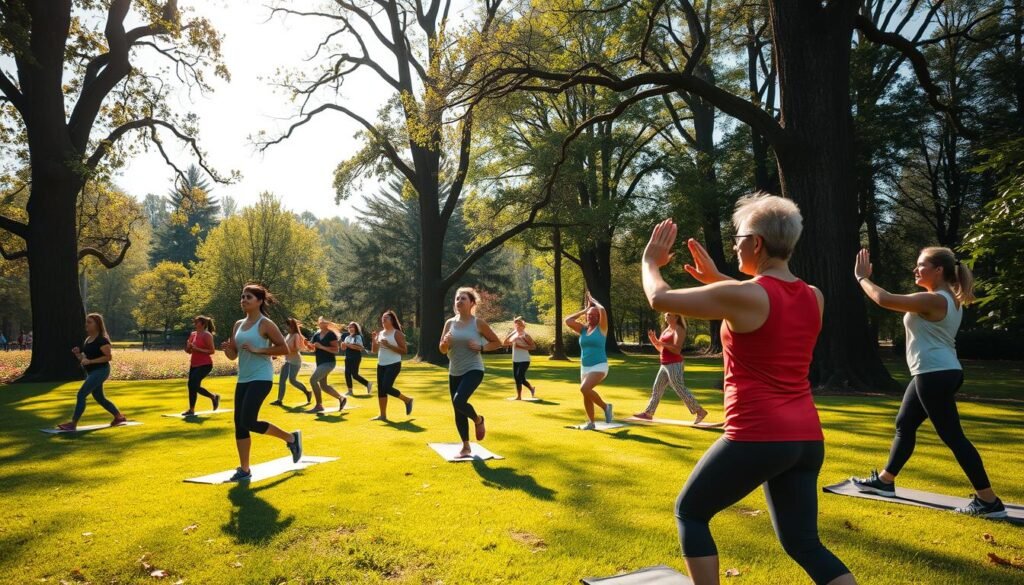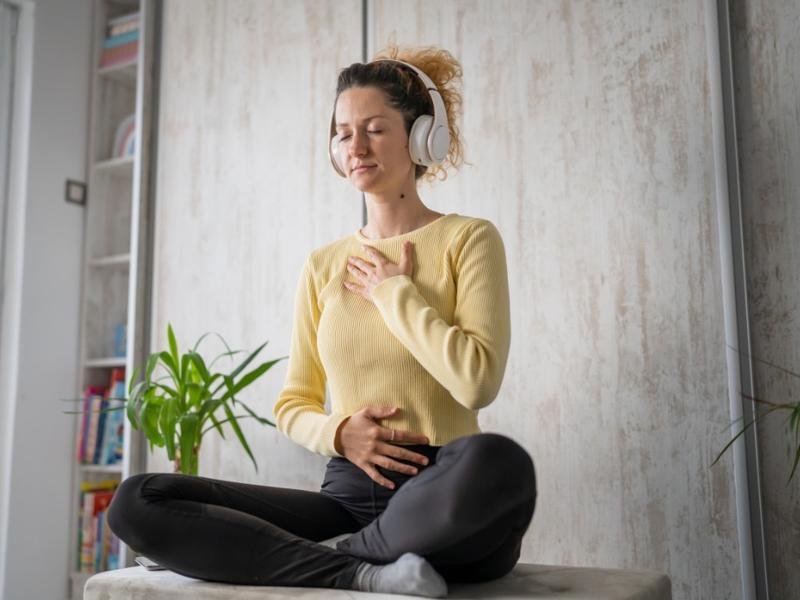In today’s fast-paced world, prioritizing self-care is crucial for maintaining overall wellness. Self-care encompasses a holistic approach to health, focusing on physical, emotional, and mental aspects. By incorporating essential self-care practices into daily life, individuals can significantly improve their quality of life and overall well-being. This includes engaging in activities that promote self-care, such as exercise, healthy eating, and stress management, all of which contribute to better self-care and wellness.
Embracing self-care and wellness as a lifestyle can have a profound impact on both physical and mental health. It is essential to recognize the importance of self-care in achieving overall wellness and to make it a priority in daily life. By doing so, individuals can experience improved mental clarity, increased energy levels, and a stronger immune system, all of which are critical components of self-care and wellness.

By understanding the value of self-care and wellness, individuals can take the first step towards creating a healthier, happier life. This involves being intentional about making time for self-care and wellness, whether that means taking a relaxing bath, reading a book, or simply taking a walk outside. Whatever the activity, prioritizing self-care and wellness is essential for maintaining a healthy and balanced lifestyle.
Introduction to Self-Care
Self-care is not a luxury, but a necessity in today’s fast-paced world. It is essential to prioritize self-care and wellness to maintain overall health and well-being. By incorporating self-care practices into daily life, individuals can improve their mental, emotional, and physical health, leading to a more balanced and fulfilling life.
Key Takeaways
- Prioritizing self-care is essential for maintaining overall wellness
- Self-care encompasses physical, emotional, and mental aspects of health
- Engaging in self-care activities can improve quality of life
- Self-care and wellness are critical for achieving overall health
- Incorporating self-care into daily life can have a profound impact on physical and mental health
- Recognizing the importance of self-care is the first step towards creating a healthier, happier life
Understanding Self-Care: What It Really Means
Self-care is often misunderstood as merely pampering oneself, but it encompasses a broader range of intentional actions to maintain and improve one’s health and well-being. At its core, self-care is about taking care of oneself, physically, emotionally, and mentally, to achieve a better quality of life. This concept is closely tied to personal development, as it involves making conscious choices to prioritize one’s own needs and cultivate a sense of self-awareness.
The Definition of Self-Care
Self-care can be defined as the practice of taking intentional steps to preserve and enhance one’s overall well-being. This can include activities such as exercise, meditation, and spending time in nature. By incorporating self-care into daily life, individuals can improve their mental and physical health, leading to a more balanced and fulfilling life.
Why Self-Care Matters
Self-care is essential for preventing burnout, reducing stress, and enhancing overall life satisfaction. By prioritizing self-care, individuals can develop a stronger sense of self-awareness, leading to better decision-making and a more positive outlook on life. Some key benefits of self-care include:
- Improved mental health and reduced stress
- Enhanced physical well-being and increased energy
- Increased self-awareness and emotional intelligence
The Benefits of Practicing Self-Care
Practicing self-care can have a significant impact on both mental health and overall wellness. By incorporating self-care into daily routines, individuals can experience a range of benefits that improve their quality of life. Regular self-care can lead to reduced stress levels, improved mood, and enhanced emotional resilience.
Some of the key benefits of self-care include:
- Improved mental health, with reduced symptoms of anxiety and depression
- Better physical well-being, including boosted immune function and improved sleep quality
- Enhanced productivity, with better focus, creativity, and overall work performance
Self-care is essential for maintaining good mental health and wellness. By prioritizing self-care, individuals can take a proactive approach to managing stress and promoting overall well-being. As research has shown, self-care is not a luxury, but a necessity for living a healthy and fulfilling life.
By making self-care a priority, individuals can experience the many benefits it has to offer, from improved mental health and wellness to enhanced productivity and overall quality of life.
Different Types of Self-Care
Self-care is a multifaceted concept that encompasses various aspects of our lives, including physical, emotional, social, and spiritual well-being. Practicing self-care is essential for maintaining a healthy work-life balance, reducing stress, and improving overall emotional well-being. By incorporating different types of self-care into our daily routines, we can enhance our resilience, productivity, and relationships.
According to the article on types of self-care, there are several ways to practice self-care, including physical activities like exercise and nutrition, emotional self-care techniques like mindfulness and meditation, and social self-care practices like building strong relationships and setting boundaries. By prioritizing self-care, we can improve our mental health, physical health, and overall quality of life.
- Physical self-care: exercise, nutrition, sleep hygiene
- Emotional self-care: mindfulness, meditation, journaling
- Social self-care: building strong relationships, setting boundaries, communicating effectively
- Spiritual self-care: practicing gratitude, connecting with nature, exploring personal values
By incorporating these practices into our daily lives, we can cultivate a deeper sense ofself-careand improve our overall well-being.
How to Create a Self-Care Routine
Creating a self-care routine is essential for maintaining a healthy work-life balance and promoting personal development. By incorporating self-care into your daily life, you can improve your mental and physical well-being, increase productivity, and enhance your overall quality of life.
To start, it’s essential to assess your needs and identify areas where you need to focus on self-care. This can include physical, emotional, or spiritual aspects of your life. By understanding your needs, you can create a personalized self-care routine that suits your lifestyle and preferences.
Assessing Your Needs
Assessing your needs involves reflecting on your values, goals, and priorities. Consider what activities make you feel relaxed, happy, and fulfilled. Do you enjoy reading, taking walks, or practicing yoga? Make a list of these activities and incorporate them into your self-care routine.
Setting Realistic Goals
Setting realistic goals is crucial for maintaining a self-care routine. Start by setting small, achievable goals, such as taking a 10-minute walk each day or practicing deep breathing exercises for 5 minutes. As you progress, you can increase the duration and intensity of your self-care activities.
Making Time for Yourself
Making time for yourself is essential for prioritizing self-care. Consider your schedule and identify time slots where you can fit in self-care activities. This can be early in the morning, during your lunch break, or before bed. Remember to be flexible and adjust your schedule as needed to ensure that self-care remains a priority.
By following these steps and incorporating self-care into your daily life, you can promote personal development, improve your well-being, and enhance your overall quality of life. Remember to be patient, kind, and compassionate with yourself as you navigate your self-care journey.
| Self-Care Activity | Duration | Frequency |
|---|---|---|
| Meditation | 10 minutes | Daily |
| Yoga | 30 minutes | 3 times a week |
| Reading | 30 minutes | 2 times a week |
Mindfulness and Self-Care: A Powerful Connection
Practicing mindfulness is a powerful way to enhance self-care, as it allows individuals to focus on the present moment and reduce stress. By incorporating mindfulness into daily life, individuals can improve their emotional regulation and increase self-awareness. This can be achieved through various techniques, such as meditation, deep breathing exercises, and mindful eating. For more information on mindfulness and self-care, visit mindfulness and self-care guide.
Some benefits of mindfulness practice include reduced stress management and improved overall well-being. By prioritizing mindfulness, individuals can take a proactive approach to managing stress and promoting relaxation. This can be especially helpful in today’s fast-paced world, where stress and anxiety are common. To get started with mindfulness, try incorporating simple practices into your daily routine, such as:
- Taking a few minutes each day to focus on deep breathing
- Practicing mindful eating by savoring each bite
- Engaging in physical activity, such as yoga or walking, while focusing on the present moment
By making mindfulness a part of your self-care routine, you can cultivate a greater sense of calm and clarity. Remember to be patient and kind to yourself as you explore the practice of mindfulness, and don’t hesitate to seek guidance from reputable resources.
Incorporating Exercise Into Self-Care
Regular physical activity is a crucial aspect of self-care, contributing to overall wellness by reducing stress and anxiety, while also improving mood and energy levels. Exercise can take many forms, from traditional workouts like running or weightlifting to more unconventional activities like dance classes or outdoor adventures. The key is to find activities that align with your personal preferences and fitness level, making self-care a enjoyable and sustainable part of your routine.
When it comes to exercise and self-care, it’s essential to focus on activities that bring you joy and make you feel good, both physically and mentally. This can include team sports, individual workouts, or group fitness classes. By incorporating exercise into your self-care routine, you can experience numerous benefits, including improved mental health, better physical well-being, and enhanced productivity.

Finding Activities You Enjoy
To make exercise a consistent part of your self-care routine, it’s crucial to find activities that you enjoy and that fit your lifestyle. This can include trying out new sports, taking a fitness class, or simply going for a walk in your neighborhood. By finding activities that you enjoy, you’ll be more likely to stick with them and make exercise a sustainable part of your self-care routine.
Setting Up a Consistent Schedule
Setting up a consistent schedule is also essential for making exercise a part of your self-care routine. This can include scheduling workouts into your daily planner, finding a workout buddy, or simply setting a reminder on your phone. By making exercise a priority and scheduling it into your daily routine, you can ensure that you’re taking care of your physical and mental health, and prioritizing your overall wellness and self-care.
Nutrition and Self-Care: Fueling Your Body
Proper nutrition is a fundamental aspect of self-care, as it directly impacts our overall wellness. A balanced diet provides the body with the necessary nutrients to function optimally, supporting physical and mental health. By prioritizing nutrition, individuals can cultivate a deeper sense of self-love, recognizing the importance of fueling their bodies with wholesome foods.
A healthy relationship with food is essential for maintaining wellness. This involves being mindful of eating habits, savoring each bite, and listening to the body’s nutritional needs. By doing so, individuals can develop a more positive and nurturing approach to nutrition, fostering a sense of self-love and care.
- Consuming a variety of whole foods, such as fruits, vegetables, whole grains, and lean proteins
- Staying hydrated by drinking plenty of water
- Limiting processed and sugary foods
By incorporating these principles into daily life, individuals can support their overall wellness and cultivate a deeper sense of self-love, recognizing the importance of nourishing their bodies with healthy foods.
The Role of Sleep in Self-Care
Sleep plays a vital role in maintaining overall health and wellness. During sleep, the body repairs and regenerates damaged cells, builds bone and muscle, and strengthens the immune system. Adequate sleep is essential for self-care, as it helps to regulate emotions, reduce stress, and improve cognitive function.
A consistent sleep schedule is crucial for good sleep hygiene. Establishing a bedtime routine, such as reading a book or taking a warm bath, can help signal to the body that it’s time to sleep. Creating a sleep-conducive environment, including a dark, quiet room with a comfortable temperature, can also improve sleep quality.
- Going to bed and waking up at the same time every day
- Avoiding caffeine and electronics before bedtime
- Getting regular exercise, but not before bedtime
- Practicing relaxation techniques, such as deep breathing or meditation
By prioritizing sleep and making it a part of self-care routine, individuals can improve their overall health and wellness, leading to a better quality of life.
| Sleep Stage | Description |
|---|---|
| Light Sleep | Easy to wake up, brain waves slow down |
| Deep Sleep | Difficult to wake up, brain waves slow down further |
| REM Sleep | Brain waves similar to being awake, dreams occur |
Digital Detox: Unplugging for Better Self-Care
In today’s digital age, it’s easy to get caught up in the constant stream of notifications, social media updates, and endless scrolling. However, excessive screen time can have a significant impact on our mental health and well-being, making it essential to incorporate digital detoxes into our self-care routines. By reducing screen time, we can improve our stress management and practice relaxation techniques more effectively.
Importance of Reducing Screen Time
Reducing screen time is crucial for our mental and physical health. Some benefits of reducing screen time include:
- Improved sleep quality
- Increased productivity
- Enhanced creativity
- Better stress management
Activities to Replace Digital Time
There are many activities that can replace digital time, promoting relaxation and personal growth. Some examples include:
- Reading
- Exercise or sports
- Meditation or yoga
- Spending time in nature

By incorporating these activities into our daily routines, we can improve our overall well-being and practice effective stress management and relaxation techniques.
| Activity | Benefits |
|---|---|
| Reading | Improved focus, reduced stress |
| Exercise or sports | Improved physical health, increased energy |
| Meditation or yoga | Improved mental health, increased relaxation |
Self-Care on a Budget: Affordable Practices
Engaging in self-care activities does not have to break the bank. Many people believe that self-care requires expensive products or services, but this is a misconception. Effective self-care is more about consistency and intention rather than financial investment. By prioritizing self-care and making a few simple changes to your daily routine, you can improve your overall well-being without overspending.
Self-care is an essential part of personal development, and it can be practiced in many different ways. Some examples of low-cost self-care ideas include taking a nature walk, practicing yoga or meditation, or engaging in a creative pursuit like painting or writing. These activities can help reduce stress and improve mental health, all while being gentle on your wallet.
Low-Cost Self-Care Ideas
- Taking a walk in a nearby park or nature reserve
- Practicing yoga or meditation at home
- Engaging in a creative pursuit like painting, drawing, or writing
- Cooking a healthy meal or trying a new recipe
Free Resources and Apps for Self-Care
There are also many free resources and apps available that can support your self-care practice. Some popular options include guided meditation apps, fitness tracking apps, and online communities focused on mental health and wellness. By taking advantage of these resources, you can prioritize your self-care and make progress towards your personal development goals without spending a lot of money.
Remember, self-care is not a luxury, it’s a necessity. By making self-care a priority and being mindful of your budget, you can improve your overall well-being and make progress towards your personal development goals.
| Self-Care Activity | Cost |
|---|---|
| Nature walk | Free |
| Yoga or meditation class | $10-$20 |
| Creative pursuit (painting, drawing, etc.) | $20-$50 |
Managing Stress Through Self-Care Techniques
Effective stress management is crucial for maintaining overall well-being. Chronic stress can have severe physiological effects on the body, including increased blood pressure, a weakened immune system, and poor sleep quality. Engaging in regular self-care practices can help mitigate these effects by promoting relaxation and reducing stress levels.
Relaxation techniques, such as progressive muscle relaxation, guided imagery, and journaling, are excellent stress-reduction strategies. These techniques can be easily incorporated into a daily routine, providing a sense of calm and tranquility. For instance, taking a few minutes each day to practice deep breathing exercises or meditation can significantly reduce stress levels.
Stress-Reduction Strategies
- Progressive muscle relaxation: involves tensing and relaxing different muscle groups to release physical tension
- Guided imagery: uses visualization techniques to create a peaceful and calming atmosphere
- Journaling: helps to process emotions and clear the mind
The Role of Hobbies in Relaxation
Engaging in enjoyable activities, such as reading, painting, or playing music, can serve as a form of active relaxation and stress relief. These hobbies can provide a healthy distraction from daily stressors, allowing individuals to unwind and recharge. By prioritizing stress management and incorporating relaxation techniques into their daily routine, individuals can improve their overall well-being and quality of life.
| Stress-Reduction Technique | Description |
|---|---|
| Progressive Muscle Relaxation | Tensing and relaxing different muscle groups |
| Guided Imagery | Using visualization techniques to create a peaceful atmosphere |
| Journaling | Processing emotions and clearing the mind through writing |
Building a Support System for Self-Care
As you embark on your self-care journey, it’s crucial to surround yourself with a supportive network. Nurturing meaningful friendships can contribute immensely to your emotional well-being and provide a shoulder to lean on during challenging times. Lean on your loved ones, share your self-care goals, and communicate your needs openly. This not only strengthens your bonds but also encourages your support system to be actively involved in your mental health journey.
In addition to your personal connections, explore the community resources available to you. Seek out local support groups, wellness programs, or mental health services that can offer guidance and a sense of belonging. Connecting with others who understand your experiences can be profoundly empowering and help you feel less alone.
Remember, self-care is not a selfish act, but rather an essential practice for maintaining your overall well-being. By prioritizing your needs, you’ll be better equipped to support and care for the people in your life. Embrace the concept of self-care as a lifelong commitment, and let it become a natural part of your daily routine.
FAQ
What is the definition of self-care?
Self-care refers to the intentional actions and practices individuals take to maintain and improve their physical, emotional, and mental well-being. It involves prioritizing one’s needs and engaging in activities that promote overall health and life balance.
Why is self-care important?
Self-care is essential for preventing burnout, reducing stress, and enhancing overall life satisfaction. Regular self-care practices can lead to improved mental health, better physical well-being, and increased productivity.
What are the different types of self-care?
The main types of self-care include physical self-care (e.g., exercise, nutrition, sleep), emotional self-care (e.g., stress management, cultivating positive emotions), social self-care (e.g., maintaining healthy relationships, setting boundaries), and spiritual self-care (e.g., practices that connect individuals to their inner selves and find meaning in life).
How can I create an effective self-care routine?
To create a successful self-care routine, it’s important to assess your individual needs, set realistic goals, and make time for yourself. This may involve incorporating specific self-care practices into your daily schedule, prioritizing self-care activities, and overcoming common obstacles to maintaining a routine.
How does mindfulness connect to self-care?
Mindfulness practices, such as meditation and deep breathing exercises, can enhance self-care by reducing stress, improving emotional regulation, and promoting self-awareness. Incorporating mindfulness into your daily routine can be a powerful way to support your overall well-being.
What role does exercise play in self-care?
Exercise is an essential component of self-care, as it can improve physical and mental health. Finding activities you enjoy and setting up a consistent exercise schedule can help you make physical activity a sustainable part of your self-care routine.
How can nutrition support self-care?
Proper nutrition is a form of self-love, as it fuels your body and supports your overall well-being. Incorporating a balanced diet and easy healthy recipes into your self-care routine can contribute to improved mood, energy levels, and cognitive function.
Why is sleep important for self-care?
Quality sleep is a fundamental aspect of self-care, as it affects various aspects of physical and mental health, including immune function, cognitive performance, and emotional regulation. Prioritizing sleep hygiene and establishing healthy sleep habits can significantly impact your overall well-being.
How can a digital detox benefit self-care?
Excessive screen time and constant connectivity can contribute to stress, anxiety, and decreased productivity. Incorporating digital detoxes into your self-care routine by reducing screen time and engaging in offline activities can promote relaxation, creativity, and personal growth.
Can self-care be affordable?
Yes, effective self-care practices can be accessible and low-cost. From free online resources and mobile apps to DIY self-care activities, there are many affordable ways to incorporate self-care into your lifestyle, regardless of your budget.
How can self-care help manage stress?
Self-care practices, such as stress-reduction strategies and engaging in enjoyable hobbies, can be powerful tools for managing and relieving stress. Identifying personal stress triggers and developing a customized stress management plan can be an integral part of an effective self-care routine.
Why is building a support system important for self-care?
Nurturing meaningful friendships and utilizing community resources can contribute to emotional well-being and provide a network of support during challenging times. Setting healthy boundaries in relationships and communicating self-care needs to others are also essential for maintaining a comprehensive self-care practice.






